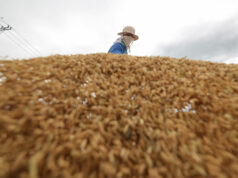Does winning a debate matter in the elections?
By Tony Samson
IN THE USUAL CRUSADE to “know the candidates,” academic consortiums, poll agencies, and media embrace the “debate” as a good forum to gauge the worthiness of an aspirant. This seems to presume that the candidate in such a setting who is best able to communicate his position in particular issues (say, the minimum age for criminal prosecution), and narrate his platform as well as recite his qualifications for office, then the voter is sufficiently informed of his worthiness to win one of the 18,000 positions he or she is running for in the 2019 midterm elections.
The debate setting is deemed ideal to highlight qualifications and contrasts among say, the 76 candidates for the 12 senatorial seats. The format theoretically elicits the debater’s position on a topic chosen from a list of issues that may have surfaced from a focus group.
The same question is asked of the seven or so (maybe more) debaters spread out on the stage and ranged alphabetically. So, the first one is at a disadvantage in formulating the initial response, especially if he is unprepared for this topic. The last one too will just parrot what brilliant answers the previous ones gave, slyly hinting that his best punch lines have been coopted by the third speaker.
Preparation for the expected topics along with statistics and quotes do not automatically reveal the candidate’s depth of knowledge on an issue, only a tutor’s handiwork in preparing his pupil. Here, the sequence of responders can steal the statistics and references from another equally prepared, especially if he employed the same debate coach.
Communications skills are paramount in this exercise. It is too much like an academic setting where points are earned from witty repartees and a cogent argument that is well delivered. No wonder the debate format favors the academically inclined, and those who teach for a living. They are standard fare for contesting student leaders as well as competing in foreign competitions.
As a spectator sport, the debate can be sleep-inducing as the same question is serially tackled by candidates who hardly qualify for “life of the party” (pun intended). Only the TV anchors and hosts need to show rapt attention to the proceedings. They are instructed not to show any facial expression of delight or disappointment to maintain a sense of fairness accorded to the most stupid answers (do I still have ten seconds?) as well as profound flights to philosophical heights.
Candidates are reminded by their coaches or PR handlers not to be too verbose, and to avoid words exceeding four syllables, like “discombobulated.” Venturing to be too intellectual is seen as being detached from the people, maybe even looking down on them. Thus, is the effort for even the clumsiest native speaker to resort to using the vernacular. Here, it is alright to wax poetic and go for deep polysyllabic words (like karumaldumal) and still stay connected to the voters. There may even be gasps of awe — ano daw?
So, does debate performance move the election needle?
Even presidential versions of the debate format seem merely obligatory appearances for the candidates. One leading candidate (a big movie star) in a past election, and conceivably a boxer in a future one, begged off from the televised spectacle — I’d rather talk directly to the people.
Are debating skills favoring words and logic, and exposing the fallacy of others part of the necessary skills set of a politician? True, candidates for the legislature are running for an office where debating dexterity seems a necessary job requirement, at least in the televised portions of the process. What about the backroom negotiations, the dangling of incentives, and the distribution of pork? The useful words to such arguments are straightforward — yes, sir.
A very high proficiency in debating skills may even be a disadvantage to the politician who must rely on a majority of voters who find verbal dexterity irrelevant, if not suspicious. Can anything be politically worse than being characterized as an “inglisero” or a windbag, dismissed as NATO (No Action, Talk Only)?
Maybe voters are wise after all. They’ve heard too much talk and too little action. But does it follow that clumsy speech and inconsistency of logic lead to effective action? That’s a question worthy of a debate…among barbers and coffee drinkers.
Tony Samson is chairman and CEO, TOUCH xda.
ar.samson@yahoo.com



